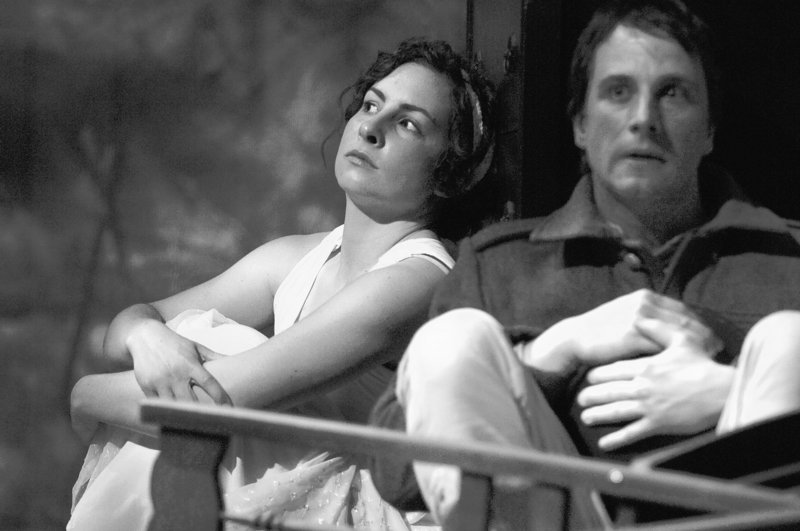PORTLAND – There was a recent letter to the editor that ended with: “Keep your children away from Catholic priests.”
When I read it, I burst into tears.
This happens to me every so often. It happened one time when I was out in California, at Donner Pass, when I first saw the poignant statue/monument of George and Tamsen Donner hugging one another, looking toward California, which they never reached (she, because she volunteered to stay behind and care for her dying husband).
It happened again when I saw “Mary’s Wedding” at Portland Stage Company, a play about young love during World War I. My parents married in 1919, six months after the war ended, having spent some of their courting time reciting Longfellow’s poems to each other.
(I will not tell you the ending of the play, but be sure to see it.)
And it happened again when I read that last line in the letter to the editor.
I am not exactly a crybaby. I survived the Great Depression. And when you are a priest, you are often involved with sad events in the lives of your parishioners, whom you consider members of your own family.
And I tend to encourage “survivors,” those stalwart souls who, in spite of “troublesome” starts, go on to do great things. (Can I mention someone like Oprah Winfrey?)
When I was 4 years old, my parents took me to church to be blessed by a “missionary” priest. All the little kids knelt at the altar rail. When the missionary came to me he put his hand on top of my head and said, “The future bishop of Portland.”
Well, I am 80 years old and the prophecy hasn’t come true. And you know what? I think I’m glad. Being a bishop today, I’m beginning to realize, is a tough job!
But this is not about bishops, popes or abused children. I am not privy to any of the details, so I cannot comment. Oh, I could weep with abused children — now grown up — weep and weep and weep. I am glad I can do this; it means that I know what they have suffered.
No, this is about priests who, like myself, spent 50 years in the Diocese of Portland before retiring (usually on doctor’s orders) and the many priests who are still working in parishes, in prisons (like I do now), in Marriage Encounter (like I used to do), etc.
I know a priest who had to retire recently who is a living saint. This essay is written as much for him, and for so many other fine priests, as it is for myself.
During my education years, I twice had to study logic: once at St. Thomas University in New Brunswick and then again at the University of Montreal. Impressed on me was Aristotle’s “distinguo.” Let me explain.
When discussing issues and debating propositions, one should always “distinguish” between those parts of the proposition that are true and those parts that are false.
One time when I was debating at St. Thomas University, one of my opponents from Nova Scotia declared, “You can tell that the first speaker on the positive side is from New Brunswick.”
I jumped to my feet with the rebuttal, “I will have you know that I am a loyal son of the state of Maine.” I got quite a cheer from the audience.
So way back then I learned never to put all “particulars into the same universal,” which means that whenever anyone makes a blanket statement about a group of people — all whites, all blacks, all Republicans, all Mainers, all priests — we should object.
“Distinguo (I distinguish), some of them may be as you say, but the vast majority may not.”
Send questions/comments to the editors.



Success. Please wait for the page to reload. If the page does not reload within 5 seconds, please refresh the page.
Enter your email and password to access comments.
Hi, to comment on stories you must . This profile is in addition to your subscription and website login.
Already have a commenting profile? .
Invalid username/password.
Please check your email to confirm and complete your registration.
Only subscribers are eligible to post comments. Please subscribe or login first for digital access. Here’s why.
Use the form below to reset your password. When you've submitted your account email, we will send an email with a reset code.